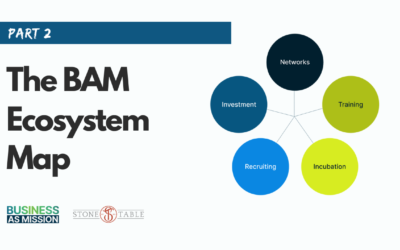Lessons Learned During COVID-19

During my corporate years, a common activity following an unexpected issue was a “lessons learned” meeting or “after action review”. The purpose of these meetings was not to problem solve but rather to glean learnings that could be helpful in either preventing future occurrences or being better prepared if they happened again.
Since 2004 I’ve practiced something similar to this personally. I now have about 20 entries that I’ve recorded downstream of significant events. Each is titled “Lessons Learned ….” This is a digital version of what the Israelites did in Joshua 4 (especially verses 21-24) when they built an “altar of remembrance”.
Several weeks ago, I drafted my “Lessons Learned during COVID-19”; I’d like to share these with you.
- We are not in control. None of us foresaw this pandemic six months ago, and no one made plans accordingly. Though I’m big on planning, these past three months have been a constant reminder that I must hold my plans loosely and be ready to adjust when life doesn’t proceed according to my plans.
- While hindsight is 20/20 (very appropriate for today), our leaders have had to make real-time decisions based upon the best knowledge and counsel available. As we’ve seen, that was frequently a moving target as more data was collected and analyzed, models were corrected, and theories were verified or thrown out the window. This is where Christ-following leaders have an advantage; they can receive the counsel of the Holy Spirit as they make decisions and set policy. I’ve also realized the necessity of granting some grace to our leaders and their counselors; they’re faced with making decisions and setting policy in the midst of significant ambiguity. I’ve asked myself several times, “could I do any better than they?” My conclusion is “no”.
- Issues and problems – whether personal, organizational or family related or even in the culture at large – are exacerbated and magnified in crisis. We see this exemplified by the wave of business closures and bankruptcies. This is also demonstrated by the uptick in mental health and domestic violence numbers. This reinforces the need for a firm foundation (see Luke 6:47-49.), whether personal or corporate.
- “One size fits all” guidelines and solutions do not really fit “all”. We watched as Dr. Birx waxed eloquent about the need to analyze the data – and then set guidelines – with granularity. As I interact with people of different nationalities, cultures, races and religions etc., I’ve discovered the necessity of getting to know individuals personally and not rely on broad-brush generalizations.
- Humankind is connected. We are all What began in Wuhan, China, has affected the entire world. Globalization of trade and travel has strongly elevated our interconnectedness.
- Philippians 2:4 has practical application in light of the fact that some people are carrying the virus but are asymptomatic. “Not looking to your own interests but each of you to the interests of the others.” Apparently healthy, possibly asymptomatic carriers were required to stay at home, practice good hygiene, etc., in order to avoid infecting others.
- People are made for connectedness. While technology is helpful, among the new vocabulary resulting from this pandemic is “Zoom fatigue”. We yearn for human connectedness and community, and – for me at least – those “boxes” that surround each of us on the screen represent walls that separate us. In our isolation we crave human contact.
Hopefully we will never see another pandemic like this, but we do not have that assurance. In fact, Jesus said, “In this world you will have trouble. But take heart! I have overcome the world.” (John 16:33b)
We are not in control; we live in a broken, fallen world. I want to carry forward these lessons learned during this adversity in order that I may respond better, more wisely, and with greater trust in God when the next calamity strikes.


